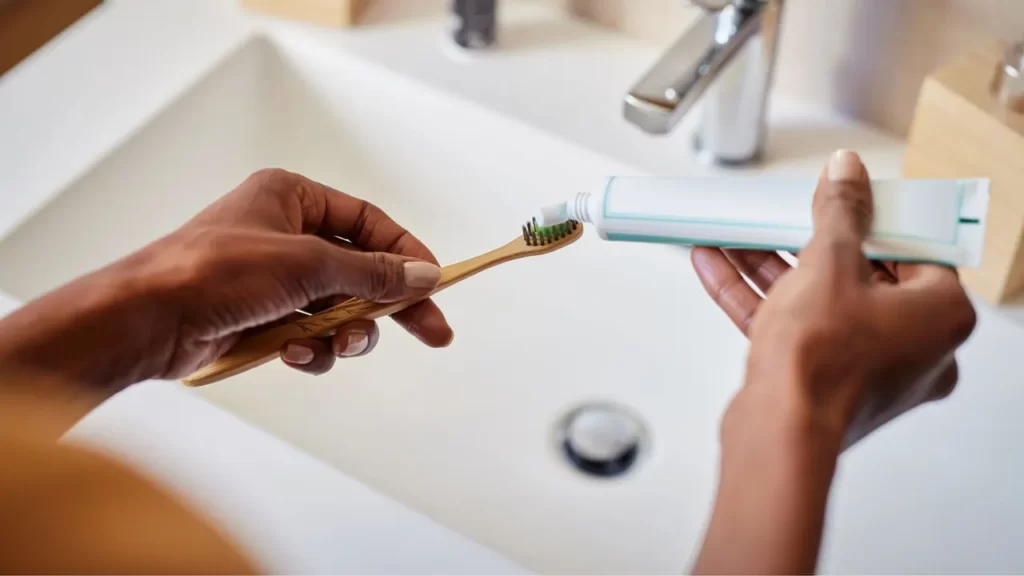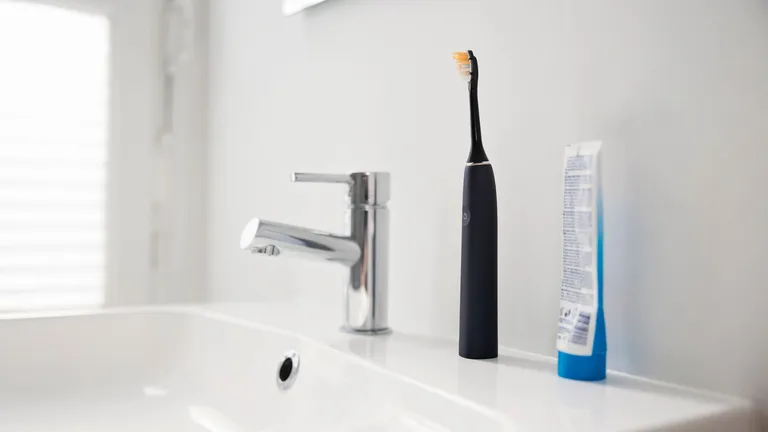19 April 2024
Why Are My Teeth So Sensitive? – Women & Home
Dentists reveal the common reasons behind this painful problem.
Wondering ‘why are my teeth so sensitive’? Here, dentists reveal the main causes of the issue – from at-home treatments to professional procedures.

Jolting pain when you bite into something cold means only one thing – sensitive teeth. But given how quickly we start to wonder ‘why are my teeth so sensitive?’ when the problem appears, it’s clearly a condition that few of us understand the origin of.
Our teeth become sensitive when the protective enamel layer becomes damaged or reduced, revealing the dentine underneath. Dentine is the main supportive structure of the tooth, and while it might be the second hardest tissue in the body (after enamel), it’s relatively soft compared to its protective layer. When the dentine is exposed, the tooth becomes sensitive.
The good news is that this is a very common problem, so there are equally as many sensitive teeth treatments to consider as reasons why your teeth are sensitive, including ones you can do with your pick of the best electric toothbrushes. Here, two dentists tell Woman & Home exactly what causes the enamel to soften, from lifestyle habits you can avoid to conditions to be concerned about.
Why are my teeth so sensitive?
Too many acidic foods and drinks
We’ve heard for years that fizzy drinks and sugary foods are bad for our teeth, but did you know these can erode that all-important enamel that protects the dentin?
Drinks like cola, soda water, coffee, energy drinks, and foods like ketchup, sweets, refined carbohydrates, and citrus fruits are guilty of contributing to enamel erosion over time.

Brushing your teeth too hard
Tooth abrasion, i.e. brushing too hard, is another cause of sensitive teeth. “Over time, brushing too aggressively can cause the tooth to wear down, removing the enamel and exposing the dentine, leading to sensitivity issues,” says Dr Mani Bhardwaj, the principal dentist and clinical director of The Smile Studios Dental Group.
One way to avoid this is to use an electric toothbrush – like the Oral-B iO10 – that has a pressure sensor to flag when you’re brushing too hard or too softly for proper care.
For the same reasons, it’s important to know how long you should brush your teeth to avoid brushing for too long, which can have the same abrasive effect as brushing too hard.
Cracks in the teeth
A chipped or broken tooth is more than just an aesthetic problem. When the tooth is broken in any way, the sensitive dentin under the fractured enamel is exposed to any bacteria that enters your mouth.
However, a crack or cavity in a tooth is also a sign of early tooth decay, warns Dr Mani. “They can have similar symptoms, so you should immediately check in with your dentist for treatment.”
Gum recession
When we think about our oral hygiene, many of us are guilty of only thinking about our teeth. However, issues with our gums can also cause sensitive teeth.
“Gum recession, where the gum reduces below the junction line it normally resides in, exposes the root of the tooth and can cause irritation and a sensitive feeling,” says Dr Mani.

Fillings
Some dental treatments can also be responsible for an increase in sensitivity – especially fillings. “This sensitivity arises due to the removal of plaque, tartar (hardened plaque), and surface stains from the teeth and gums during the cleaning process,” says Dr Rahul Nehra, the lead dentist at The Smile Gallery.
“Dental hygienists use specialised instruments to scale away plaque and tartar buildup, which can irritate the gums and expose sensitive areas of the teeth. Additionally, the polishing step of the cleaning process can contribute to sensitivity by temporarily roughening the tooth surface,” he says.
“However, this discomfort is usually temporary and should subside within a few days as the gums heal and the teeth adjust.”
Teeth whitening treatments
Teeth whitening treatments, whether performed professionally or using over-the-counter, at-home whitening products like whitening toothpaste, often result in temporary sensitivity, says Dr Nehra. “Whitening agents, typically hydrogen peroxide or carbamide peroxide, penetrate the enamel to break down stains and discolouration molecules. As the whitening agents permeate the enamel, they can temporarily weaken the tooth structure and expose the underlying dentin, which contains nerve endings.” This can cause your teeth to be particularly sensitive to hot, cold, sweet or acidic foods.
However, the effects don’t tend to last long. “It usually diminishes within a few days as the teeth rehydrate, and the enamel remineralises,” he says. “However, individuals with pre-existing sensitivity or enamel erosion may experience more prolonged discomfort, and it’s advisable to consult with a dentist before undergoing whitening treatments to minimise potential side effects.”
When should I be worried about sensitive teeth?
It’s normal to have sensitive teeth once in a while, as the experts explain, but if your teeth are causing enough pain to prevent you from living your daily life, you should seek help from your dentist immediately. “Concern over sensitivity should be raised with your dental practitioner when the problem becomes unbearable, limits daily activity or normal day-to-day activities, especially if you’re unable to consume food and beverages,” says Dr Mani.
While how often you should go to the dentist depends on your individual needs, most people go to the dentist and hygienist at least once a year to prevent the build-up of common dental issues like sensitive teeth.
In the meantime, quick fixes include swapping out your toothbrush for one with soft bristles, switching to one of the best toothpaste for sensitive teeth, and taking any acidic, sweet, very cold or hot drinks and food from your diet.
Back to Blog